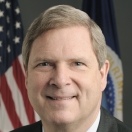

Ed. note: This is cross-posted on the U.S. Department of Agriculture's blog. See the original post here.
Every parent’s wish is for their children to thrive and prosper. Yet, too many of our nation’s families still live in poverty, despite doing their best to make ends meet. Rural families and children have additional challenges as schools, health care services, healthy food choices, jobs, and other opportunities are often miles away in a different town, county, or even state. The Obama administration is committed to these families, and believes that all children — no matter where they live — should have an opportunity to succeed.
Today, President Obama and I met with eight members of the National 4-H community in the Oval Office. Each one of them had an inspiring story about how they are opening up new doors for kids in their hometowns, and how this work is building stronger communities where they can learn, play, and grow.
We wanted to take a moment to introduce you to these young leaders and tell you about the projects that encouraged President Obama to invite them to the White House to say “thank you.” Investing in kids like these is an investment in America’s future.
The White House Rural Council, which I chair, is taking on rural child poverty as a top priority. Learn more about our plan to leverage federal resources and partner with others to help these families succeed. We will be working directly with kids and families to help them create more opportunities for themselves, their communities, and their future.
You too can be a part of the solution. Visit serve.gov and use #ServeRural to help us build up one community at a time – starting with yours.
Kashawn Burke, 16, Georgia
“Being a healthy living youth ambassador has made me more aware of childhood obesity. Since then I have been working with youth in my community on physical activity and healthy eating.”
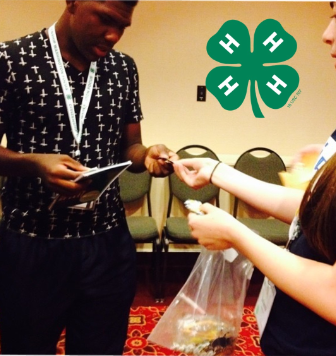
Kashawn Burke is a 16-year-old sophomore who is active in ROTC, a Cross Country Runner, a 4-H Healthy Living Youth Ambassador, and an active member of the 4-H Robotics Club with Fort Valley State University. Kashawn’s 4-H Healthy Living ambassador platform is Childhood Obesity. This was inspired by 4-H and his Basic Ag Science & Technology Class. He has raised awareness by promoting healthy eating and physical activity to citizens in his community.
Jacob Jensen, 17, Utah
“Of all the many different opportunities to serve, child hunger and poverty is the one that I felt like I could have the most impact. This is where I felt like I could make a difference. As Dr. Seuss says, ‘Unless someone like you cares a whole awful lot, nothing is going to get better. It’s not.’”
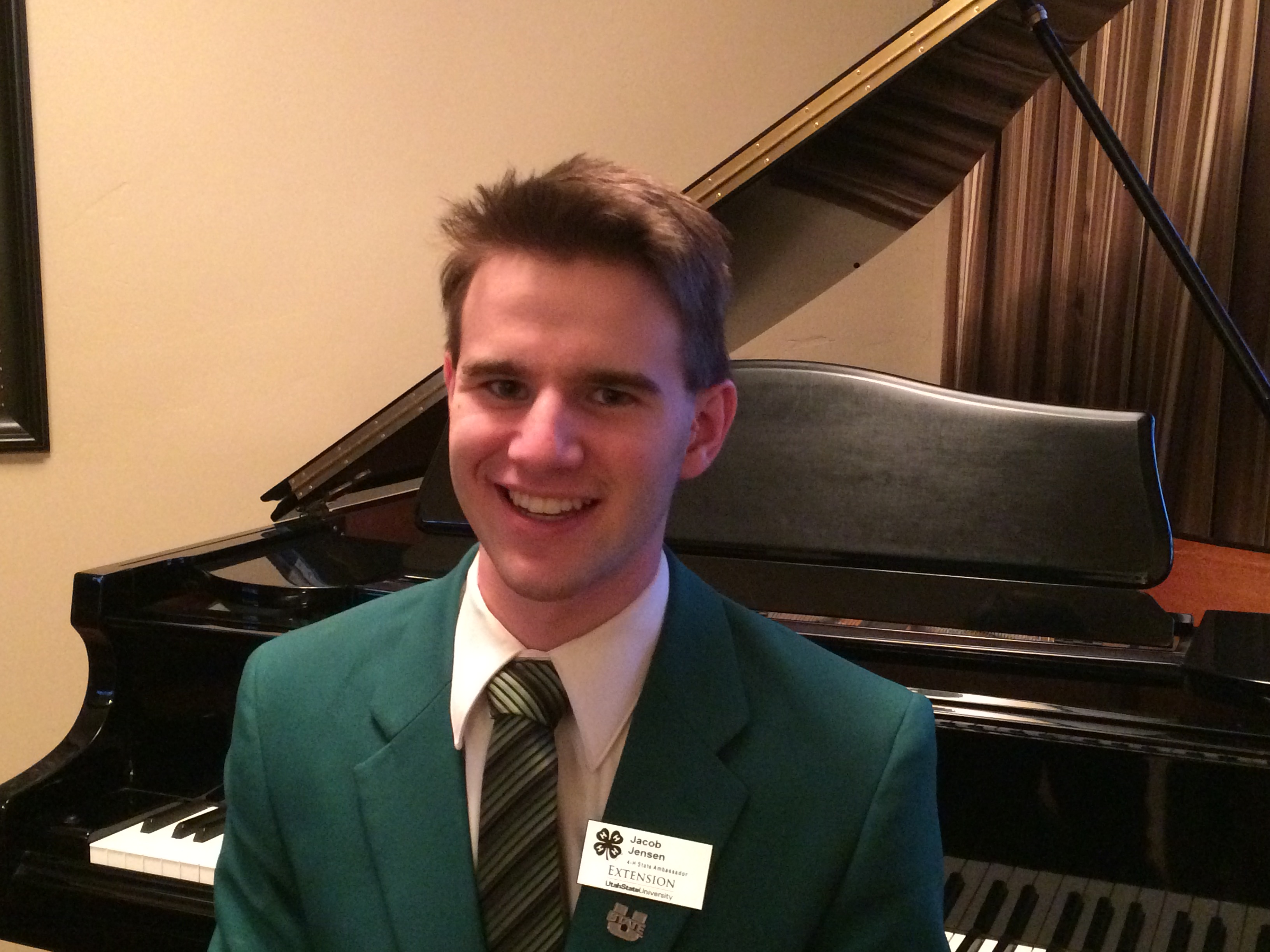
For 15 years, the Salt Lake County Program 4-H has been a huge part of Jacob Jensen’s life. He has donated thousands of pounds of fresh vegetables to the Utah Food Bank from his personal garden and worked with Utah 4-H on a project to donate 905,000 pounds of meat to the Utah Food Bank, feeding over 444,000 Utahans facing hunger. During his 4-H State Ambassador Project, Jacob taught over 160 low income youth about healthy eating, mental health, substance abuse, and physical fitness.
Kimberly Lopez, 15, Idaho
“I am motivated to do this type of community service because I see problems everywhere in my town, but I also saw ways I could help to better our community What keeps me committed is actually seeing the change in the kids in my community in the ways that they eat and how active they are and how everyone works together to make the town better.”

Kimberly Lopez, was one of 19 Idaho teens chosen to launch Idaho’s 4-H Food Smart Families teen program after being trained at the University of Idaho. After her time there, she returned to her hometown in Idaho in order to teach youth and families that food security hinges on more than meals, but also the value of nutrition education and healthy choices.
Spencer Orr, 17, Iowa
“4-H has provided me with the opportunity to gain leadership, citizenship, and communication skills, all while being able to learn and help others within my community. My experiences through 4-H have shaped me into the person that I am, and will continue to impact my life forever.”
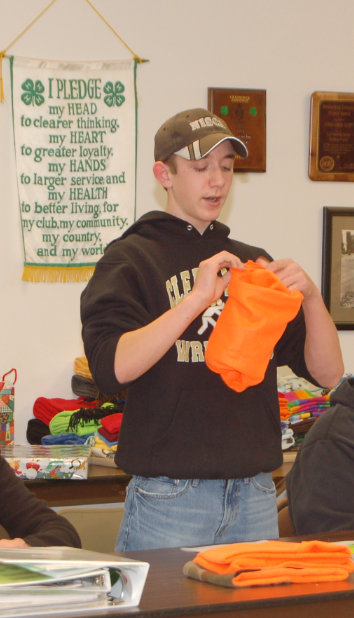
Spencer Orr has been involved with 4-H since he was in fifth grade. A junior in high school now, Spencer competes in various horse competitions and showing at the local and state level. He has played a role in taking his local Bits and Spurs Judging Team to win the Iowa state championship four years in row. 4-H has provided Spencer with the opportunity to gain leadership, citizenship, and communication skills, all while being able to learn and help others within his community.
Gabrielle Parker, 17, Maryland
“I am helping my community grow and thrive by sharing with other youth what 4-H has taught me: it is okay to step out of your comfort zone. As young adults in today’s society we have countless opportunities to make a difference. One of 4-H’s mottos is ‘Learn by Doing.’”

When Gabrielle attended her very 4-H first club meeting freshman year of high school, she was unanimously elected as Club Secretary. More recently, thanks to 4-H, she was selected as a member of the state teen leadership forum in the Maryland 4-H State Council. She also was a catalyst for Maryland 4-H’s highly-successful and nationally-recognized Youth Healthy Living Ambassador program. Gabrielle is proud to be a member of a military family.
Andres Parra, 20, Arizona
“Kids need to become leaders in their community because it’s difficult to hear only one voice but, when there are hundreds of kids leading positive changes, I know they can make a huge difference.”

Andres was introduced to the 4-H/United Healthcare Eat4-Health program and discovered a passion for nutrition and exercise that led to more productive academic and personal health habits. These habits had a personal impact for Andres, who lost 60 pounds by his senior year. Through the program, Andres became a teen health ambassador and taught more than 200 5th and 6th graders about nutritious eating habits and making healthy choices.
Lorena Rivera, 15, Idaho
“I am helping my community’s young children because they are our future. I want them to know that they have older people, adults and teens here to help them. I help them gain knowledge about how to create healthy meals with their families and help them understand concepts they cannot quite grasp.”
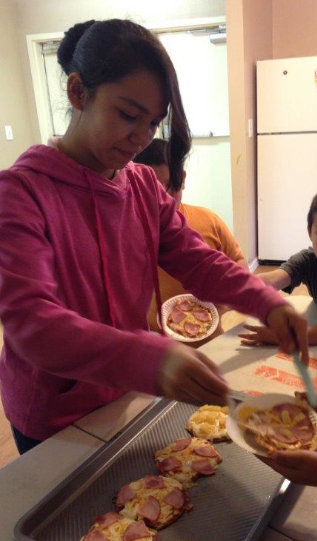
Lorena Rivera was one of 19 Idaho teens chosen in May 2014 to launch Idaho’s first 4-H Food Smart Families teen program. The program addresses food insecurity by empowering families to make informed decisions about budgeting at the store and cooking healthful meals at home. After training at the University of Idaho, Lorena returned to her hometown in Idaho to demonstrate hands-on healthy living strategies, helping other 4-H youth to work to make positive changes in their community.
Geneva Wright, 18, Alaska
“I found out that I have a voice and am helping others to realize they have a voice and to speak out against violence and to have a stand. Not just in my village, but across the state.”

Geneva Wright, is Koyukon Athabascan from the Native Village of Tanana, Alaska. She has been active in 4-H for over four years, and has participated in local, regional and national events. She is a responsible, trustworthy teen who often is asked to assist the school principal and other adults in her village. She loves basketball, dogs and being with her friends and family. Through her 4-H public speaking projects she has not only made statewide, but national impacts, and has encouraged other to share their voices.
